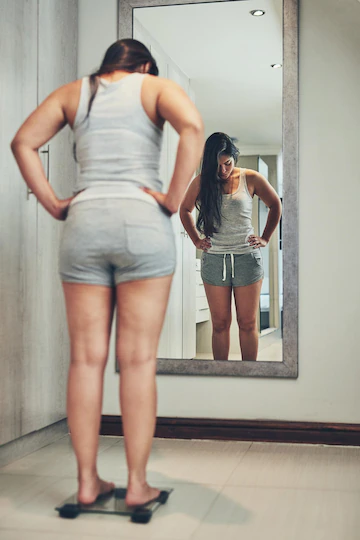Introduction:
Body Dysmorphic Disorder (BDD) is a complex mental health condition characterized by a preoccupation with perceived flaws or defects in one’s physical appearance. Individuals with BDD often experience significant distress and impairment in various areas of life. Understanding BDD and developing effective coping strategies is essential for individuals living with the disorder. In this article, we will explore the nature of BDD, its impact on individuals, and provide helpful coping mechanisms to manage its challenges.
- Understanding Body Dysmorphic Disorder: Body Dysmorphic Disorder involves obsessive thoughts and compulsive behaviors related to body image concerns. Individuals with BDD have an exaggerated focus on specific aspects of their appearance, perceiving them as flawed or unattractive, despite others not noticing or perceiving these flaws in the same way. Common areas of concern may include skin, hair, nose, weight, or any other part of the body. The condition often leads to severe anxiety, depression, and social withdrawal.
- Seek professional help: If you suspect you may have BDD, it is crucial to seek professional help. Reach out to a mental health professional experienced in treating body image disorders. They can provide an accurate diagnosis, assess the severity of your symptoms, and develop an appropriate treatment plan. Cognitive-Behavioral Therapy (CBT) and medication, such as selective serotonin reuptake inhibitors (SSRIs), are commonly used in the treatment of BDD.
- Challenge negative thoughts: Negative thoughts and self-perception are central to BDD. Learn to recognize and challenge these thoughts by questioning their validity. Ask yourself if there is objective evidence supporting your negative beliefs. Consider alternative perspectives and focus on positive aspects of yourself that are unrelated to appearance. Cognitive restructuring exercises, such as keeping thought records or journaling, can be helpful in challenging and reframing negative thoughts.
- Limit mirror checking and reassurance-seeking behaviors: Individuals with BDD often engage in repetitive behaviors, such as checking their appearance in mirrors or seeking reassurance from others. These behaviors can reinforce the obsession with perceived flaws and worsen anxiety. Gradually reduce the frequency of mirror checking and seek support from your therapist to resist reassurance-seeking behaviors. Over time, this can help break the cycle of negative self-perception.
- Practice self-care and self-compassion: Caring for your overall well-being is crucial when coping with BDD. Engage in activities that promote self-care and self-compassion. Prioritize activities that make you feel good, such as exercise, hobbies, or spending time with loved ones. Practice self-compassionate self-talk and challenge your inner critic. Treat yourself with kindness and understanding, recognizing that you are more than your appearance.
- Build a support system: Having a support system of understanding and empathetic individuals can greatly aid in coping with BDD. Share your experiences and feelings with trusted friends or family members who can provide support and encouragement. Consider joining support groups or online communities where you can connect with others who have similar experiences. Sharing and listening to others’ stories can provide validation and a sense of belonging.
- Develop healthy coping strategies: When experiencing distress or anxiety related to BDD, it is essential to develop healthy coping strategies. Engage in relaxation techniques, such as deep breathing exercises or meditation, to reduce stress levels. Find healthy outlets for emotional expression, such as journaling or engaging in creative activities. Develop a list of activities that bring you joy or distract you from negative thoughts and engage in them during challenging moments.
Conclusion:
Body Dysmorphic Disorder can significantly impact an individual’s well-being and quality of life. By understanding the nature of BDD and implementing coping strategies, individuals can manage its challenges effectively. Seeking professional help, challenging negative thoughts, limiting compulsive behaviors, practicing self-care and self-compassion, building a support system, and developing healthy coping strategies are vital in the journey of living with BDD. Remember, recovery is possible, and with the right support and strategies, individuals can find relief and reclaim their lives.










